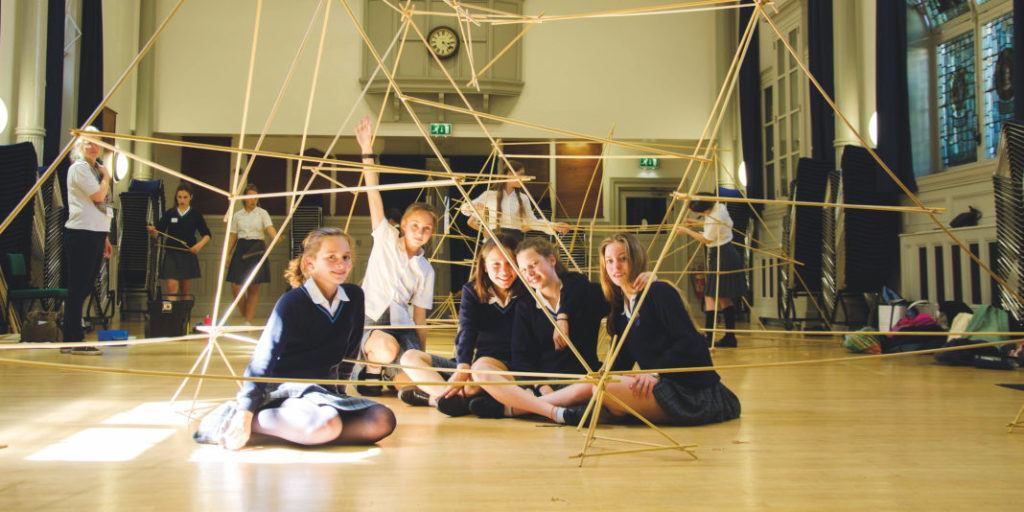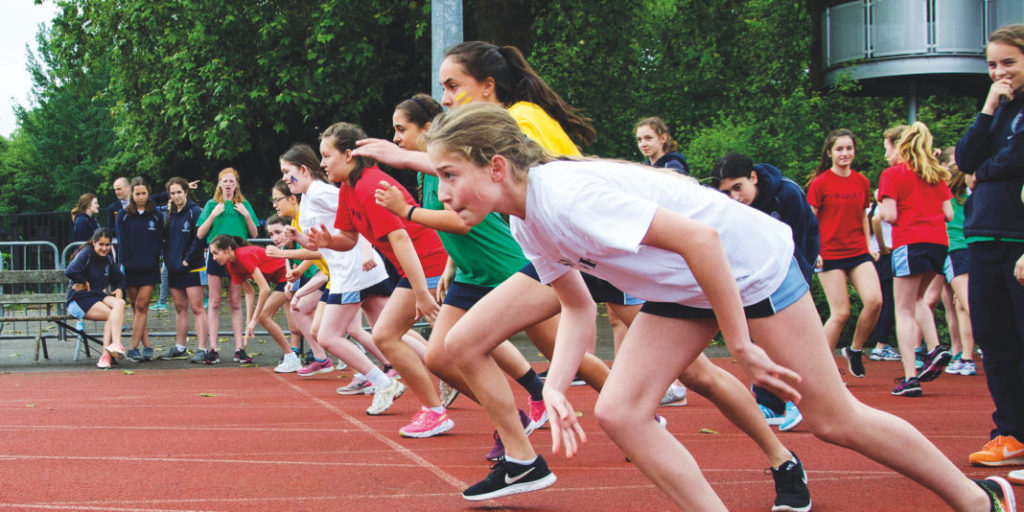As the state sector improves standards by leaps and bounds, is an independent school education still worth the cost? Lucy Elphinstone, Headmistress at Francis Holland School, explains why she believes the answer is “yes!”
“What’s the difference between an independent school education and a state one?” my friend repeated sarcastically. “The size of your ego!” Her joke taps into a change in the landscape of education: the state sector has improved in terms of governance, leadership, academic standards and teachers’ incentives, so why bother paying for the private version?
According to the Department for Education, 82% of primary schools and 71% secondary schools are now being judged as “good” or “outstanding” by Ofsted, so can paying up to £25,000 a year for a day school, and around £35,000 for a boarding school, really be worth it?
Leaving aside the obvious proviso that there are good and bad schools in both sectors, I would say the answer is still a resounding “yes”. It is a well-known and, some might say, uncomfortable fact that despite privately-educated students making up only 7% of the population, more than half of Oxbridge undergrads are from independent schools.
The same is true of many industries such as law, finance, and journalism, and of chief executives in Britain. Not only does the teaching produce top grades, but the careers guidance on offer also aids confidence, focus and self-belief. Work experience and internships are readily available, and in the world of work, alumni networks provide continuing support and opportunity.
Choosing a school
As parents, we all agree that there is nothing as precious nor as important as our children, and no job decision or house purchase comes near the possible impact on their lives as choosing a school. Of course, there is an element of risk in whatever decision we make, but we can find reassurance in knowing we have selected an excellent independent school.
INDEPENDENT SCHOOLS ARE FREE FROM TOP-DOWN CONTROL AND CENTRAL-FUNDING
What is it that makes this type of education so different, and often so much better? The key lies in the word “independent”. Private schools are free from the national curriculum and the narrow Ofsted agenda. They are led by headteachers free to follow their vision and set their own mission statement. They are free from top-down control and central-funding. They are free from relentless target-setting and assessment. Competition banishes mediocrity and encourages the highest standards. Independence ensures variety and enterprise; there is a school that fits your child perfectly.
Looking at the benefits
Let us look at some of the advantages. Firstly, small class sizes mean that your child is given personal attention and greater support. “Stretch and challenge” are provided to the gifted and talented, while expert professional help is available to those with learning needs. Inevitably, pastoral care is better, too, as children are nurtured by teachers who know them well and have time to understand their needs.

Above, an architecture workshop in Thinking Innovatively and Problem Solving Week (TIPS)
At Francis Holland School, Sloane Square, we have been at the forefront of supporting the emotional wellbeing of girls by establishing mindfulness in the curriculum, and establishing Place2Be (a charity dedicated to early intervention in children’s mental health) as a central, not peripheral, part of our provision.
Freedom from relentless testing at primary level means that children can enjoy creative and innovative learning. Coding, robotics and app design are all enthusiastically taught at our school by teachers encouraged to share their own passions and interests, and adopt their own styles.
Find your perfect school on our Schools Directory
Indeed, independent schools can adapt quickly to the changing demands of the digital age, and often have the funding to ensure the very best resources and facilities. Our school, in particular, is building a Centre for Creative Learning, with a tranquil rooftop garden for mindful relaxation.
The independent curriculum celebrates breadth as well as depth. In the state sector, the looming crisis over arts subjects being cut as pressure to meet targets in core subjects increases, means the likes of drama, music, art and photography are being axed. Equally, the teaching of languages is also in swift decline.
Independent schools, on the other hand, passionately adhere to the values these subjects provide – from creating community bonds to inspiring imaginations – and offer room for them not only in the school timetable, but also in the form of extra-curricular activities.
Being a good sport
Another big benefit of independent education is its emphasis on sport, producing many of our country’s elite athletes. Whereas only one or two lessons a week might be dedicated to PE in a state school, games happen almost every afternoon (in boarding schools) in the independent sector, with competitive matches occurring twice a week.
 Above, pupils at Francis Holland participate in the school’s Sports Day
Above, pupils at Francis Holland participate in the school’s Sports Day
Not only does this programme bring obvious physical health benefits, but it aids mental fitness too. In a girls’ school like ours, this helps pupils to overcome fear of failure
and perfectionism.
This reflects a central tenet of independent education: that it is as important to develop character as intellect. Courtesy, humility, courage, service, kindness and compassion are values constantly taught and reinforced through initiatives such as volunteering, Duke of Edinburgh Awards, Combined Cadet Force, peer mentoring, assemblies and chapel.
Children learn that their life is given meaning as they serve others; and they learn that success is not measured simply in good grades, but in living a good life.
